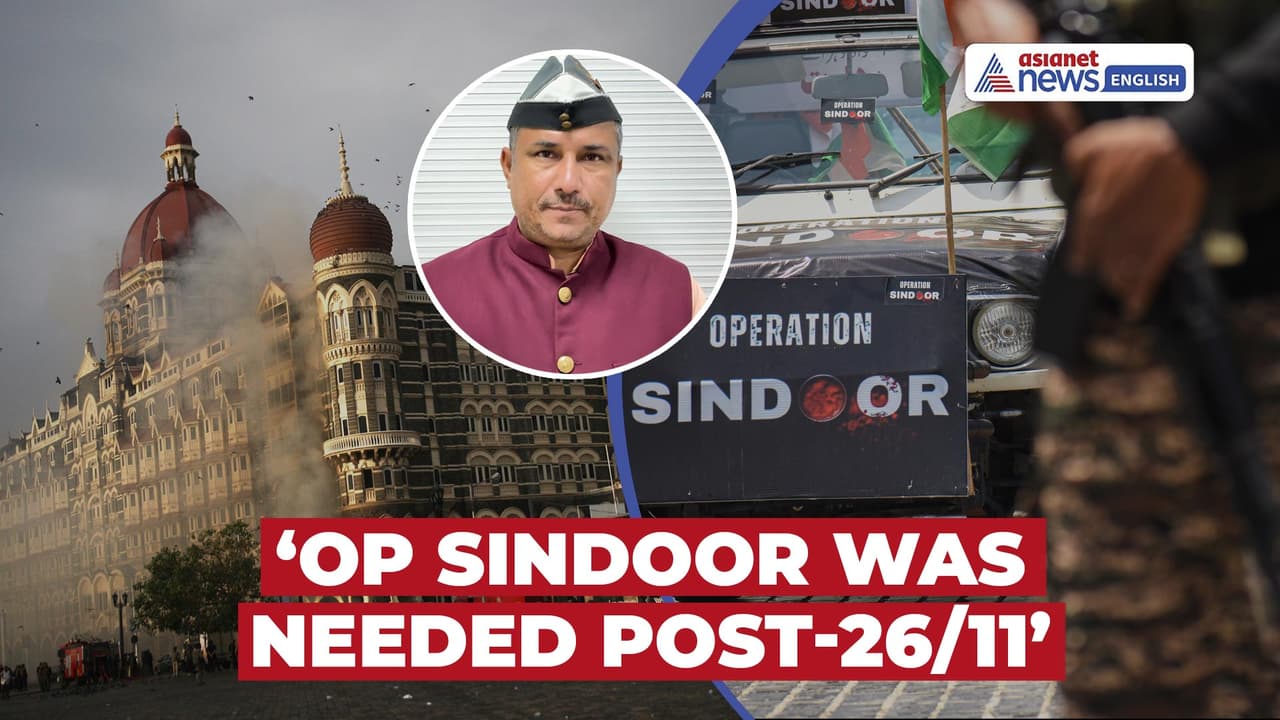Ex-NSG commando Surendra Singh recalls the horror of 26/11 — corpses in hotels, 166 killed, and the intense three-day operation. He slams the 2008 government for not striking Pakistan and salutes India’s current resolve.
As the country marks 17 years since 26/11, Surendra Singh — a former NSG commando who fought in the siege — recalls the horror, the sacrifice and the deep scars of that night. His words evoke the chaos, the valour, and the frustrations that linger even today.
The Horror of 26/11: What Went Down
On the night of November 26, 2008, Mumbai was besieged by ten terrorists from Lashkar-e-Taiba, trained and armed in Pakistan, targeting landmark venues in a coordinated spree of terror.
By the end of the three-day siege, 166 civilians had lost their lives and hundreds were injured. The elite NSG was called in for the final assault, and eventually nine terrorists were killed and one — Ajmal Kasab — was captured alive. He was eventually sentenced to death and hanged in Pune’s Yerwada Jail on 21 November 2012.
Surendra Singh says those memories never fade.

“I Salute All Those Martyrs”
Speaking to Asianet Newsable English, Surendra Singh painted a grim picture on the 17th anniversary of the dasdardly attacks:
“Jai Hind, friends, today is the anniversary of 26/11. I salute all those martyrs. It’s been seventeen years. But whenever 26/11 comes to mind, it sends shivers down my spine. The way the hotel was littered with corpses, small girls, women, and 166 people were killed by the enemies of the country,” the ex-NSG hero recalled.
He paid tribute not only to the civilians lost, but also to the NSG commandos who stormed the buildings:
“The NSG commandos gave them a befitting reply. I salute those commandos too,” he said.
Remembering the Counter-Strike, and the Captured Terrorist
Singh reminded viewers of what was achieved:
“NSG commandos fought for three days in those difficult conditions. Ultimately, we killed nine terrorists, and Kasab was captured alive, who was later hanged,” he recalled.
Kasab’s capture and eventual execution brought a measure of justice — but, for Surendra Singh, that was never the end of the story.
“Then-Government Did Nothing”
Singh contrasted the response of the government in 2008 with what he perceives as a stronger, more decisive stance today. He accused the Congress of failing to retaliate after the attack:
“There’s a huge difference between the government of that time and the government of today,” Singh remarked, lauding how PM Narendra Modi responded to attack on the nation recently with Operation Sindoor. It’s worth noting that the precision strikes in May 2025 were in response to the Pahalgam terror attacks that shook the nation.
“Even at that time, the country wanted an attack on Pakistan. The world wanted an attack on Pakistan. But the then-current Congress government made no effort. They didn’t attack. They didn’t take any strict action. They just stood here in Delhi and kept saying the same thing: ‘We will respond to brick with stone, we will respond to brick with stone.’”
“The country uprooted and threw out such a Congress. Jai Hind, Jai Bharat, Bharat Mata ki Jai,” he concluded.
What 26/11 Means Today — In the Shadow of New Operations
The 26/11 attacks changed India’s security outlook forever. The siege exposed serious lapses and triggered reforms in intelligence, rapid response protocols, and urban counter-terror readiness. Data shows the 2008 attacks resulted in 166 civilian deaths, and the NSG’s intervention (among other forces) prevented civilian casualties from their own fire.
Now, 17 years on, forces are responding decisively to fresh threats. Under Operation Sindoor, India recently struck nine terror camps across Pakistan and Pakistan-occupied Kashmir — including one reportedly in Muridke, historically linked to terror infrastructure.
For veterans like Surendra Singh, this contemporary resolve validates the sacrifices made in 2008 and serves as a reminder: the fight against terror is ongoing, not symbolic.
